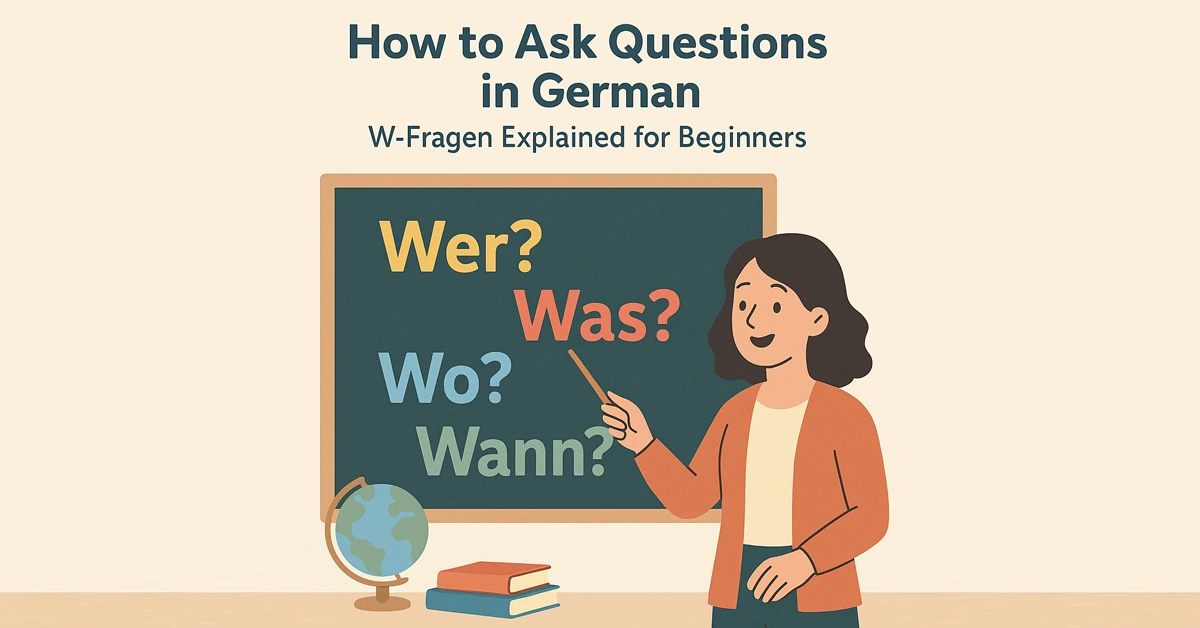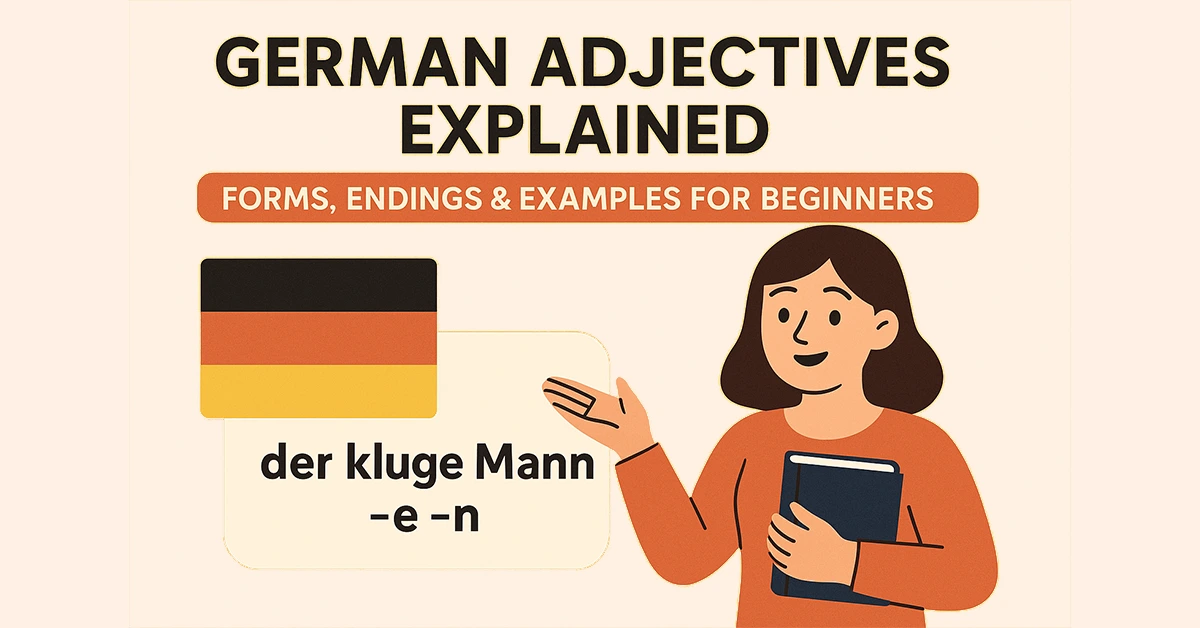German grammar
-

Ask Questions in German – W-Fragen Guide + Free PDF
Learn how to ask questions in German with W-Fragen like wer, was, wo, wann. Beginner-friendly grammar rules, real examples, and practice tips included.
-

German Adjectives Explained: Forms, Endings & Examples
Learn how to use German adjectives correctly with this beginner-friendly guide. Explore endings, declension tables & examples to improve your German grammar.